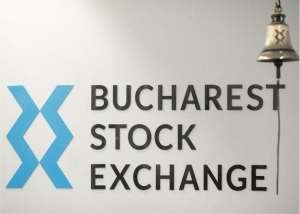The great race for the anti-Covid vaccination is in full swing across the whole world. Millions of people are hoping that the vaccine will end the pandemic and we will be able to return to normal. At the same time, many people are of two minds, because, even though they want to protect themselves from getting infected with SARS-CoV-2, they are also afraid of the possible effects of the vaccination. There are still doubts about how safe the vaccines are, given the speed at which they have been developed, and if the potential side effects have been studied adequately.
In addition to skepticism, there is inequality in access to the vaccine between rich and poor countries.
"The world is on the brink of a catastrophic moral failure," Tedros Adhanom Ghebreyesus, head of the World Health Organization, warned.
He explained that it is wrong for younger and healthier adults in rich countries to be vaccinated ahead of health workers and older people in poorer countries.
The head of the WHO also said that the makers of the vaccines have granted priority to the approval by regulators in rich countries, where profits are greater, instead of submitting complete applications to the WHO.
"Even though they speak the language of fair access, some countries and companies continue to prioritize bilateral agreements - going around Covax, raising prices and trying to jump in front of the queue," said Tedros Adhanom Ghebreyesus.
In addition, the WHO director says that this uneven situation will lead to a prolongation of the pandemic.
"Not only does this 'me first' approach leave the world's poorest and most vulnerable at risk, it is also self-destructive. Ultimately, these actions will only prolong the pandemic, "said Tedros Adhanom Ghebreyesus.
The prospects for a fair distribution are "in grave danger" before the start of the WHO vaccine distribution scheme known as COVAX, which is scheduled to begin next month.
The WHO director added that 44 bilateral contracts for the purchase of the coronavirus vaccine were signed last year, and at least another 12 this year.
"This could delay COVAX deliveries and create the exact scenario which COVAX was created to avoid, with hoarding, a chaotic market, an uncoordinated reaction and a continuous economic and social disruption," he explained.
The head of the WHO gave as an example of inequality the fact that more than 39 million doses of vaccine were administered in 49 rich countries, while in a poor country only 25 doses were injected.
• Equal access to the COVID-19 vaccines could be worth billions
Equal access for all to COVID-19 vaccines could be worth more than $ 460 billion for 10 major economies by 2025, according to a report commissioned by the Bill & Melinda Gates Foundation and compiled by the Eurasia Group and presented by the World Economic Forum.
Data shows that leaving low- and middle-income to low-income countries without access to vaccines in the COVID-19 pandemic will cause significant economic damage to all economies and jeopardize "decades of economic progress."
The 10 countries analyzed in the report - Canada, France, Germany, Japan, Qatar, South Korea, Sweden, the United Arab Emirates, the United Kingdom and the United States - contributed $ 2.4 billion to the works of ACT-Accelerator by December 2020. Accelerator is a collaboration launched in April by the WHO and its partners to support the development and equitable distribution of COVID-19 tests, treatments and vaccines.
However, the program still has a significant funding gap of $ 28.2 billion - with $ 4.3 billion urgently needed to accelerate critical areas of work.
The Eurasia report finds that the economic benefits of a fair global vaccine solution for the 10 countries included in the analysis would be at least $ 153 billion in 2020-21, reaching $ 466 billion by 2025.
• Eastern Europe - skeptical when it comes to the vaccine
In the Balkans and in other regions in South Eastern Europe, the vaccination campaign against the coronavirus is overshadowed by heated political debates or conspiracy theories which threaten to prevent the process, according to abcnews.
Vaccines from the West, Russia or China? Or nothing? This is dilemma facing the nations of Southeast Europe, where coronavirus vaccination campaigns have begun slowly - overshadowed by heated political debates and conspiracy theories.
In countries such as the Czech Republic, Serbia, Bosnia, Romania and Bulgaria, vaccine skeptics have included former presidents and even some doctors. Serbian tennis champion Novak Djokovic was among those who said he did not want to be forced to get vaccinated.
Beliefs that SARS-CoV-2 is a hoax or that vaccines would involve injecting microchips into people have spread to countries that were previously under communist rule.
"There is a direct link between belief in conspiracy theories and skepticism about vaccination. A majority in the whole region does not intend to be vaccinated, a considerably lower ratio than in other parts of Europe, where a majority is in favor of the vaccine", a recent Balkan study found, according to the publication.
Only about 200,000 people applied for the vaccine in Serbia, a country of 7 million people, in the days after authorities opened the procedure. Instead, 1 million Serbs signed up for 100 euros ($ 120) on the first day the government offered aid for the pandemic.
The question also arose as to whether the country would opt for the Pfizer vaccine or the Russian vaccine. Finally, Serbian officials announced that 38% of those who applied for the vaccine were in favor of the Russian vaccine, while 31% wanted Pfizer-BioNTech - a tough division between pro-Russians and pro-Westerners in Serbia.
In neighboring Bosnia, a war-torn country that remains ethnically divided between Serbs, Bosnians and Croats, politics is also a factor, as the Serb-led half seems to opt for the Russian vaccine, while the Bosnian-Croatian side will probably orient towards the western ones.
A study by the Balkans in Europe Policy Advisory Group, published before the start of the regional vaccination campaign in December, concluded that viral conspiracy theories are believed by almost 80% of Western Balkan citizens striving to join the EU. About half of them will refuse vaccination, according to the study.
A low level of information about viruses and vaccines, distrust of governments and repeated claims by the authorities that their countries are besieged by foreigners help explain the high prevalence of these beliefs, according to the Balkan think tank.
A study by the Balkans in Europe Policy Advisory Group, published before the start of the regional vaccination campaign in December, concluded that viral conspiracy theories are believed by almost 80% of Western Balkan citizens striving to join the EU. About half of them will refuse vaccination, according to the study.
Similar trends have even been noticed in some countries in some South East of the European Union.
In Bulgaria, widespread conspiracy theories have hampered past efforts to deal with an outbreak of measles. Polls there have suggested that distrust of vaccines remains high. A recent survey by Gallup International found that 30% of respondents want to be vaccinated, 46% will refuse and 24% are undecided.
In the Czech Republic, where polls show that about 40% reject vaccination, protesters at a large rally against government restrictions in Prague called for vaccinations not to be mandatory. Former President Vaclav Klaus, a staunch critic of the government's pandemic response, told the crowd that vaccines were not a solution.
Hungarian populist authorities have taken a hard line against misinformation of the virus, but vaccine rejection is still estimated at about 30% of the population. Parliament adopted emergency powers in March, allowing authorities to prosecute anyone they believe "successfully inhibits" the defense against the virus, including "scaremongering" or spreading false news. At least two people who criticized the government's response to the pandemic on social media have been arrested, but neither of them was formally charged.
Romanian Health Minister Vlad Voiculescu said he relies on family doctors to "inform, schedule and monitor people after the vaccination" and that his ministry would offer bonuses to health workers based on the number of people they bring on board. Asked if such incentives would fuel anti-vaccination propaganda, Voiculescu said: "I am more interested in doctors' opinion on this issue than I am in anti-vaxxers".
According to a recent survey conducted by Reveal Marketing Research, only 36% of Romanians want to get vaccinated against Covid-19 right away, 26% prefer to wait and 38% of Romanians say they will not get vaccinated. Only 24% of rural citizens said they would be vaccinated, while in urban areas 45% of respondents are in favor of immediate vaccination.
According to a recent survey conducted by Reveal Marketing Research, 62% of Romanians are eager to get vaccinated against Covid-19, of which 36% immediately and 26% prefer to wait. 38% of Romanians say they will not be vaccinated. Only 24% of rural citizens said they would be vaccinated, while in urban areas 45% of respondents are in favor of immediate vaccination.
• Safety of vaccines in question after deaths shortly after administration
Confidence in the Pfizer vaccine was shaken over the weekend, when Norway issued a Pfizer vaccine safety alert after noticing that 23 elderly people died shortly after receiving the vaccine.
Yesterday (ed. note: January 18) the number of deaths among vaccinated people in Norway reached 33. Other countries, including Germany and Israel, also reported deaths in people who were recently vaccinated, but it has not been identified to date whether their deaths was caused by the vaccine, reports Bloomberg.
Yesterday, the number of deaths among vaccinated people in Norway reached 33. Other countries, including Germany and Israel, also reported deaths in people who were recently vaccinated, but it has not been identified to date whether their deaths were caused by the vaccine, reports Bloomberg.
Doctors say, according to Bloomberg, that the side effects of the vaccine may exacerbate pre-existing diseases and that nursing home residents were expected to die shortly after being vaccinated, as deaths are more common among the most vulnerable. the sickest elderly patients.
Doctors say, according to Bloomberg, that the side effects of the vaccine may exacerbate pre-existing diseases and that nursing home residents were expected to die shortly after being vaccinated, as deaths are more common among the most vulnerable. the sickest elderly patients.
"Clearly Covid-19 is far more dangerous to most patients than vaccination," Steinar Madsen, the medical director of the Norwegian Medicines Agency, told Bloomberg on Monday, adding that it was difficult to prove a link between the vaccine and deaths: "We are not alarmed".
The Norwegian National Institute of Public Health has amended the coronavirus vaccination guideline, adding new precautionary advice on vaccinating frail elderly people following recent events.
French doctor Gerard Delepine told Francesoir: "The current results of the Pfizer vaccine among the Israeli and British populations really raise fears of a health catastrophe following the vaccination, and the Norwegian alert raises concerns".
He also points out in an opinion piece published by French publication Francesoir that although the media crowns Israel as the champion of the fight against Covid using the Pfizer vaccine, the daily number of contaminations and deaths attributed to the Covid-19 virus has increased.
"Since December 20, in 24 days, more than 20% of Israelis (two million people) have been vaccinated. But since then, according to WHO figures, the daily number of contaminations and deaths attributed to Covid-19 has exploded. Thus, the daily contaminations went from 1886 cases on December 21, to 8094 on January 10", doctor Gerard Delepine said.
He also points out that in the UK, the second country in the vaccination race, which started on December 4 with the vaccine developed by Pfizer and BioNTech, the number of daily contaminations exploded from 14,898 on December 4 to 68,063 on January 9, 2021. Unfortunately daily Covid-19 mortality rate follows a similar trend.
The question also arose as to whether the country would opt for the Pfizer vaccine or the Russian vaccine. Finally, Serbian officials announced that 38% of those who applied for the vaccine were in favor of the Russian vaccine, while 31% wanted Pfizer-BioNTech - a harsh rift between pro-Russians and pro-Westerners in Serbia.
Dr Gerard Delepine said: "These significant and simultaneous increases in the daily incidence of contamination and deaths after vaccination are very worrying and confirm that vaccine marketing authorizations have been premature."
He added that in France, both the number of new cases and the number of daily deaths remained stable during this period and at a much lower level than in countries that are champions of vaccination.
As a medical conclusion, he points out that the differences in the evolution of the Covid-19 epidemic between the countries that are first in the vaccination race, and France, which is slower in vaccination, are striking.
"Since the widespread administering of the Pfizer vaccine, the number of daily infections and deaths has risen sharply in Israel and the United Kingdom, while among the French the epidemic has slowly declined," said Gerard Delepine in his analysis.
There are still many ambiguities about vaccines, and the skepticism and reluctance hovering around it will not go away soon.
However, the COVID-19 pandemic has shown us that no single institution or person can defend itself against the economic, environmental, social and technological challenges of our complex, interdependent world. It is equally clear that mass immunization is needed to overcome this pandemic.
• Israel has already vaccinated almost a quarter of the population
Israel, the country with the highest vaccination rate in the world, has already immunized about a quarter of its population of about 9 million people and plans to accelerate the pace of the immunization campaign even further.
The number of Israelis who have been vaccinated since the beginning of the campaign amounts to about 150,000 people a day, or about a quarter of the population. The Israeli prime minister recently said that if the infection rate exceeds the rate of vaccination, new restrictions will be imposed, which is why the Israeli authorities want to speed up the immunization process.
Prime Minister Benjamin Netanyahu said yesterday: "We are bringing more vaccines. I hope that today we will vaccinate around 200,000 people and that we will continue to do so during the week, to allow the gradual reopening, with a green passport, of parts of the economy and life, until we completely reopen".
Israel aims to vaccinate five of the nine million citizens with both doses of the Covid vaccine by mid-March.
The elderly, adults with chronic conditions and people working in sectors where they are exposed to the virus have been given priority. But as Israeli officials anticipate the arrival of more shipments of new doses of vaccine, other categories will be added to the list, including children over the age of 12, if possible.
The vaccination campaign was launched on December 19 at an intense pace set by Prime Minister Benjamin Netanyahu, who was the first person in Israel to be vaccinated with the Pfizer / BioNtech COVID vaccine.
• Over 42.2 million vaccine doses administered globally
The biggest vaccination campaign in history has begun at the end of last year. Over 42.2 million doses in 51 countries have been administered so far, according to data collected by Bloomberg. The most recent rate has been on average, of approximately 2.43 million doses a day.
One of the countries with the highest vaccination rates is the United States, which began its immunization campaign on Dec. 14 with health care workers and has so far administered 14.3 million doses, according to a Bloomberg report. data from the Center for Disease Control and Prevention.
The US is followed by China, which has developed its own vaccine, the EU and the UK. However, Israel is the country with the highest percentage of the population immunized - over 25%.
























































